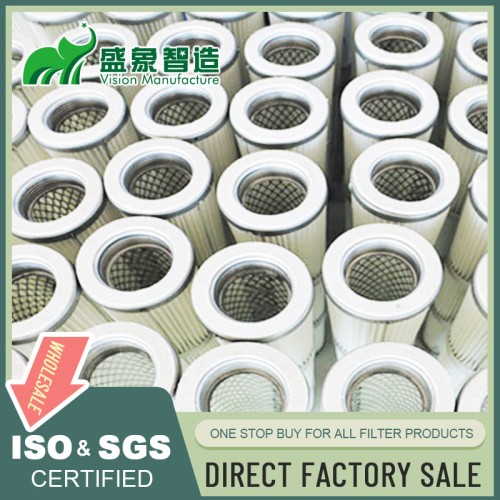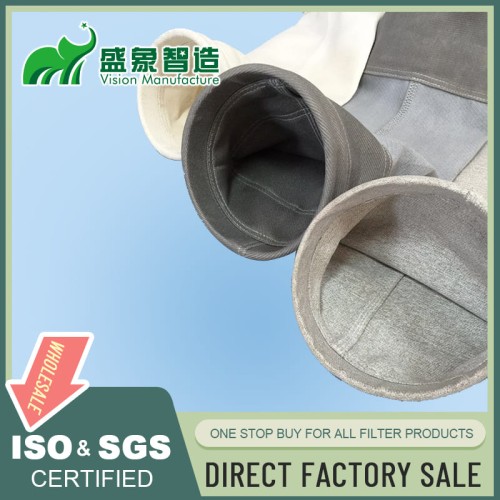
Types of Filter Bags for Dust Collector: A Comprehensive Guide
I. Introduction
Filter bags are the unsung heroes of dust collectors, playing a crucial role in maintaining air quality. This guide delves into the diverse world of filter bags, focusing on types and considerations for effective dust collection.
|
Heading |
|
I. Introduction |
|
II. Importance of Filter Bags in Dust Collectors |
|
III. Common Materials Used |
|
IV. Types of Filter Bags |
|
A. Polyester Filter Bags |
|
B. Polypropylene Filter Bags |
|
C. Aramid Filter Bags |
|
D. PPS Filter Bags |
|
E. Fiberglass Filter Bags |
|
V. Factors Influencing Filter Bag Selection |
|
A. Temperature Resistance |
|
B. Chemical Compatibility |
|
C. Particle Size |
|
D. Durability |
|
VI. Popular Brands and Products |
|
VII. Installation and Maintenance Tips |
|
VIII. Environmental Impact |
|
IX. Latest Technological Advancements |
|
X. Conclusion |
|
XI. FAQs |
II. Importance of Filter Bags in Dust Collectors
Filter bags act as the primary barrier, trapping dust particles and preventing their release into the air. This not only ensures a cleaner working environment but also prolongs the life of the dust collector.
III. Common Materials Used
Understanding the materials used in filter bags is vital for making an informed choice. Common materials include polyester, polypropylene, aramid, PPS, and fiberglass.
IV. Types of Filter Bags
A. Polyester Filter Bags
Known for their durability and resistance to moisture, polyester filter bags are ideal for industries with demanding filtration needs.
B. Polypropylene Filter Bags
Polypropylene bags excel in chemical resistance, making them suitable for applications where exposure to corrosive substances is common.
C. Aramid Filter Bags
Aramid bags, often recognized by brand names like Nomex, exhibit exceptional temperature resistance, making them suitable for high-heat applications.
D. PPS Filter Bags
Polyphenylene Sulfide (PPS) bags are resistant to chemical corrosion and high temperatures, making them a preferred choice in certain industries.
E. Fiberglass Filter Bags
Fiberglass bags are known for their high-temperature resistance and are often used in industrial processes involving extreme heat.
V. Factors Influencing Filter Bag Selection
A. Temperature Resistance
Consider the operating temperature of your dust collector, as different filter bag materials have varying heat resistance levels.
B. Chemical Compatibility
Evaluate the types of substances being filtered to ensure the selected filter bag material is chemically compatible.
C. Particle Size
The size of the particles being collected influences the choice between filter bag materials designed for fine or coarse filtration.
D. Durability
Industries with heavy dust loads may benefit from more durable filter bag materials like polyester or aramid.
VI. Popular Brands and Products
Explore renowned brands and products known for manufacturing high-quality filter bags. Understanding the market ensures a reliable purchase.
VII. Installation and Maintenance Tips
Proper installation and regular maintenance are crucial for optimizing filter bag performance and extending their lifespan.
VIII. Environmental Impact
Consider the environmental implications of different filter bag materials. While some are recyclable, others may have a higher energy footprint.
IX. Latest Technological Advancements
Stay informed about the latest advancements in filter bag technology, ensuring you benefit from cutting-edge solutions.
X. Conclusion
Choosing the right filter bag for your dust collector involves a careful consideration of various factors. By understanding the types available and their specific characteristics, you can make an informed decision that aligns with your industry's needs.
XI. FAQs
1. How do I determine the right filter bag material for my industry?
Assess your industry's specific needs, considering factors like temperature, chemical exposure, and particle size.
2. Are polyester filter bags suitable for high-temperature applications?
Polyester bags have moderate temperature resistance; consider aramid or fiberglass for high-temperature environments.
3. Can I use polypropylene filter bags for corrosive substances?
Yes, polypropylene bags are known for their excellent chemical resistance and are suitable for corrosive environments.
4. What maintenance is required for filter bags?
Regular inspections, cleaning, and timely replacement as per manufacturer recommendations are crucial for optimal performance.
5. Are filter bags recyclable?
Some materials like polyester and polypropylene are recyclable, contributing to environmental sustainability.
6. Are there eco-friendly alternatives to traditional filter bag materials?
Emerging technologies focus on developing sustainable filter bag materials, contributing to a greener industry.
Additional Resources:
· U.S. Environmental Protection Agency (EPA)
· World Health Organization (WHO)
· Occupational Safety and Health Administration (OSHA)


